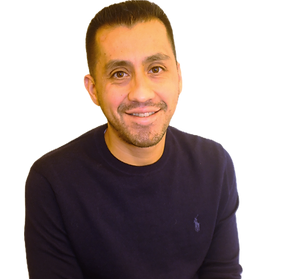
My working framework is that of cognitive and behavioral therapies (CBT) and emotional therapies. We will therefore work on the thoughts (“cognitions”), emotions and behaviors related to the difficulties that cause you to consult. This approach will focus on your current problems. In other words, it is working in the here and now. Which of course does not preclude taking into account elements of your past that may play a role in your current difficulties. It is a collaborative approach, where the therapist and you work together to get the best out of yourself. Finally, it is also an active and concrete approach, familiarizing you with the use of tools and techniques that can help you manage your current difficulties more effectively.
My working framework is that of cognitive and behavioral therapies (CBT) and emotional therapies. We will therefore work on the thoughts (“cognitions”), emotions and behaviors related to the difficulties that cause you to consult. This approach will focus on your current problems. In other words, it is working in the here and now. Which of course does not preclude taking into account elements of your past that may play a role in your current difficulties. It is a collaborative approach, where the therapist and you work together to get the best out of yourself. Finally, it is also an active and concrete approach, familiarizing you with the use of tools and techniques that can help you manage your current difficulties more effectively.
During the first session, you will be asked to complete a psychological assessment. This is a kind of inventory of what you are currently experiencing difficulty with.
This assessment takes place over approximately 2 sessions (1st session included) and consists of gathering general information about what brings you to consultation and, if necessary, taking and completing various questionnaires (in session and at home).
A proposal for support is formulated at the end of the assessment. Two options are then possible: you decide to continue or interrupt the work because, for reasons that are your own, you do not want to continue the work that has been started. Moreover, the therapist may also refer you if he believes the problem you bring is outside his area of expertise.
The pace of sessions is usually weekly in the beginning, but decreases as therapy progresses. In particular, this rhythm depends on the wishes of the person consulting, on his/her psychological suffering, on the type of care being provided…. in any case, nothing is fixed and adjustments are possible at any time.
Finally, remember that the patient has the right, and without justification, to interrupt treatment at any time if he wishes.
After obtaining my degree in clinical psychology at UCL with distinction, I deepened my knowledge in clinical psychology and psychotherapy through an additional master’s degree obtained with high distinction and an interuniversity certificate in “Intervention and psychological assessment psychotherapy” within the same university.
During this specialization, in particular, I had the opportunity to work with different patient populations suffering from different psychological and psychiatric problems: at the Domaine (ULB-Erasme) in a department particularly dealing with obsessive-compulsive disorders (OCD); at the Institute of Psychiatry of the CHU Brugmann in a department specialized in the care of people suffering from psychosis; at the CHR of the Citadel of Liège, within the medical-psycho-social emergency department and also at the Specialized Psychological Consultations – Emotional Disorders of the Catholic University of Louvain. To this was also added a 15-month experience at the Grand Hôpital de Charleroi, where I participated in the management of crisis and psychiatric emergencies and in performing diagnostic assessments.
Finally, I worked for 8 years as a clinical psychologist at the Vincent Van Gogh Hospital (University Hospital of Charleroi) in a closed ward specialized in the treatment of psychoses in the acute phase. And currently I work in the diagnostic department of the same hospital. I also practice cognitive and behavioral psychotherapy in private practice and in multidisciplinary centers since 2012.
As an NIHDI-approved psychologist, the following rates currently apply:
Detailed information can be found on the NIHDI website.
Clinical psychologist and cognitive-behavioral therapist.
(Commission of Psychologists registration number: 861211503; Visa number: 291884).
Primary care adult clinical psychologist (NIHDI approved).
(NIHDI number: 7-00698-30-000)
Specializing in the psychotherapeutic follow-up of adults and young adults 18 and older.
Affiliated with the AEMTC and the UPPCF
Changes regarding appointments must be cancelled at least 48 hours (2 full working days) in advance via secretarial office. If this deadline is not respected, which unfortunately can happen at times, we are forced to charge a flat fee of 60.00 EUR for a late cancelled or missed consultation.
The average cost for such a missed call for us is +/- 130 euros, since we usually cannot see anyone else at that time. By sending you a bill of 60 euros for the appointment that did not go through, we are charging you less than half of the call. We are thus simultaneously taking on the other half of the cost.
Click here for an initial appointment with Eric Lambrechts.
For ongoing follow-ups, please contact him directly by e-mail at eric.lambrechts@mentalhealth.brussels.
We all experience moments in our lives of feeling stuck, but sometimes it becomes too overwhelming to handle on our own.
In those moments, reaching out for help can make all the difference.